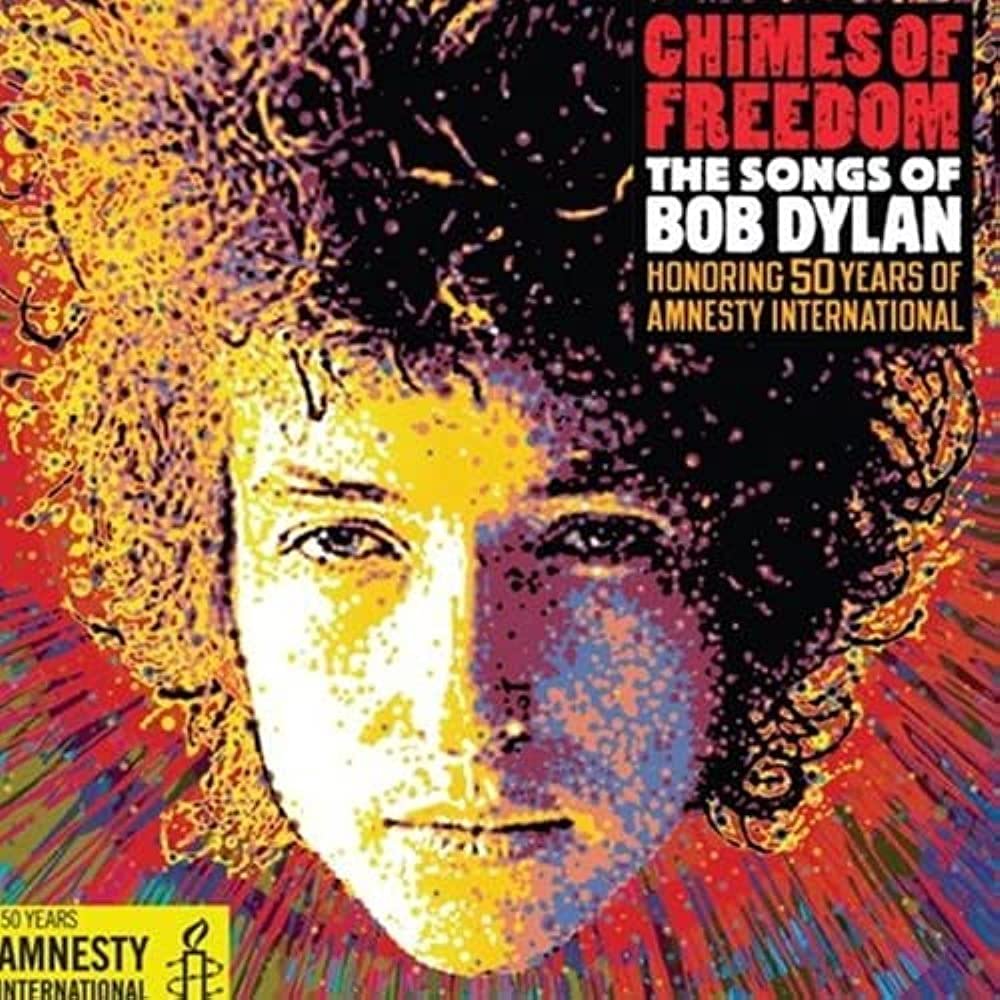Some notes from our Hav’Dylan concert, July 2022
Of all the songs we’re performing tonight, I want to highlight one in particular. “Chimes of Freedom” is a song written by Bob Dylan and featured on his 1964 album Another Side of Bob Dylan. The song’s lyrics were influenced by the symbolist poetry of Arthur Rimbaud and the sprung rhythm and assonance of Gerard Manley Hopkins, even a bit of his namesake, Dylan Thomas.
You know, he was born שבתאי זיסל בן אברהם Shabtai Zisl ben Avraham, or Robert Allen Zimmerman. His paternal grandparents, Anna Kirghiz and Zigman Zimmerman, emigrated from Odessa in the Russian Empire—now Ukraine—following the pogroms against Jews of 1905. His maternal grandparents, Florence and Ben Stone, were Lithuanian Jews who arrived in the United States in 1902. What does that have to do with this song?
“Chimes of Freedom” depicts the narrator and his companion as they duck into a doorway to wait out a thunderstorm, transfixed by one lightning flash after another.
But this is about more than a rainstorm. He sings of the downtrodden, the unjustly treated, the refugees, the abandoned and forsaken. The narrator has a synesthetic experience—this is where one sense is perceived as another sense, sight as sound, touch as taste for instance—here, he perceives each flash as the tolling as bells, ringing for the oppressed everywhere.
Music critic Paul Williams has described the song as Dylan’s Sermon on the Mount. That may be a bit hyperbolic but the song certainly aspired to more than what you’d find on the Billboard charts then or now. Remember, 1964 was the year of the British Invasion—the Beatles were still singing simple songs, twisting and shouting, love love them do and all that. Roy Orbison sang “Pretty Woman”—which is a great song, try getting it out of your head—but there’s little more to it than “hey, you, you’re a, well, pretty woman.” As for the Beach Boys, they got around round round from town to town ad infinitum.
Bob Dylan is a different breed of songwriter, and “Chimes Of Freedom” is a different breed of song.
Far between sundown’s finish an’ midnight’s broken toll
We ducked inside the doorway, thunder crashing
As majestic bells of bolts struck shadows in the sounds
Seeming to be the chimes of freedom flashing
Far from a sermon on the mount, this is in some ways his own personal Sinai—a time and place where people SAW the SOUNDS. These moments transcended human vision and glimpsed eternity. Synesthesia or holy vision? Why not both?
It is the combination of sympathy and hope for the oppressed and those struggling to express themselves—to make their voices heard amid the tyranny of contemporary life, as with “the countless confused, accused, misused, strung out ones and worse.” This is much more than “hey, pretty woman, I want to hold your hand even though I get around.”
At the end of each verse, Dylan names the Outsiders, listen for it.
- And for each and every underdog soldier in the night
- And for each unharmful, gentle soul misplaced inside a jail
- And for every hung-up person in the whole wide universe
By the end of the song, the fierce, unforgiving thunderstorm has given way to at least a partial lifting of the mist, hope, a glimpse of eternity.
This song was a turning point for Dylan. It is a synthesis of earlier, more direct protest songs with the more allusive, poetic style he would grow into from here. Seth Rogovy wrote that “Dylan paints a hallucinatory vision, a sensual display of lightning piercing darkness, revealing an unjust world and a world of redemption. Wrapped up in the song is all that has come before: the civil right symbolism of Blowin’ in the Wind, the apolcalyptic surrealism of A Hard Rain’s a-Gonna Fall, the tolling of a new day in The Times They Are a-Changin’.”
Maybe it’s just me, but I see echoes of Hopkins’ poem, God’s Grandeur, a fall and rise and glimmer of hope if we only remember, if we only look carefully and see with all of our senses.
The world is charged with the grandeur of God.
It will flame out, like shining from shook foil;
It gathers to a greatness, like the ooze of oil
Crushed. Why do men then now not reck his rod?
Generations have trod, have trod, have trod;
And all is seared with trade; bleared, smeared with toil;
And wears man’s smudge and shares man’s smell: the soil
Is bare now, nor can foot feel, being shod.
And for all this, nature is never spent;
There lives the dearest freshness deep down things;
And though the last lights off the black West went
Oh, morning, at the brown brink eastward, springs —
Because the Holy Ghost over the bent
World broods with warm breast and with ah! bright wings.
This is where we sang Chimes of Freedom.
Far between sundown’s finish
An’ midnights broken toll
We ducked inside the doorway, thunder crashing
As majestic bells of bolts
Struck shadows in the sound
Seeming to be the chimes of freedom flashing
Flashing for the warriors whose strength is not to fight
Flashing for the refugees on the unarmed road of flight
An’ for each an’ every underdog soldier in the night
An’ we gazed upon the chimes of freedom flashing
Even though a cloud’s white curtain
In a far-off corner flashed
An’ the hypnotic splattered mist Was slowly lifting
Electric light still struck like arrows, fired but for the ones
Condemned to drift or else be kept from drifting
Tolling for the searching ones, on their speechless, seeking trail
For the lonesome-hearted lovers with too personal a tale
An’ for each unharmful, gentle soul misplaced inside a jail
An’ we gazed upon the chimes of freedom flashing
Starry-eyed an’ laughing as I recall when we were caught
Trapped by no track of hours for they hanged suspended
As we listened one last time an’ we watched with one last look
Spellbound an’ swallowed ’til the tolling ended
Tolling for the aching ones whose wounds cannot be nursed
For the countless confused, accused, misused, strung-out ones an’ worse
An’ for every hung-up person in the whole wide universe
An’ we gazed upon the chimes of freedom flashing

